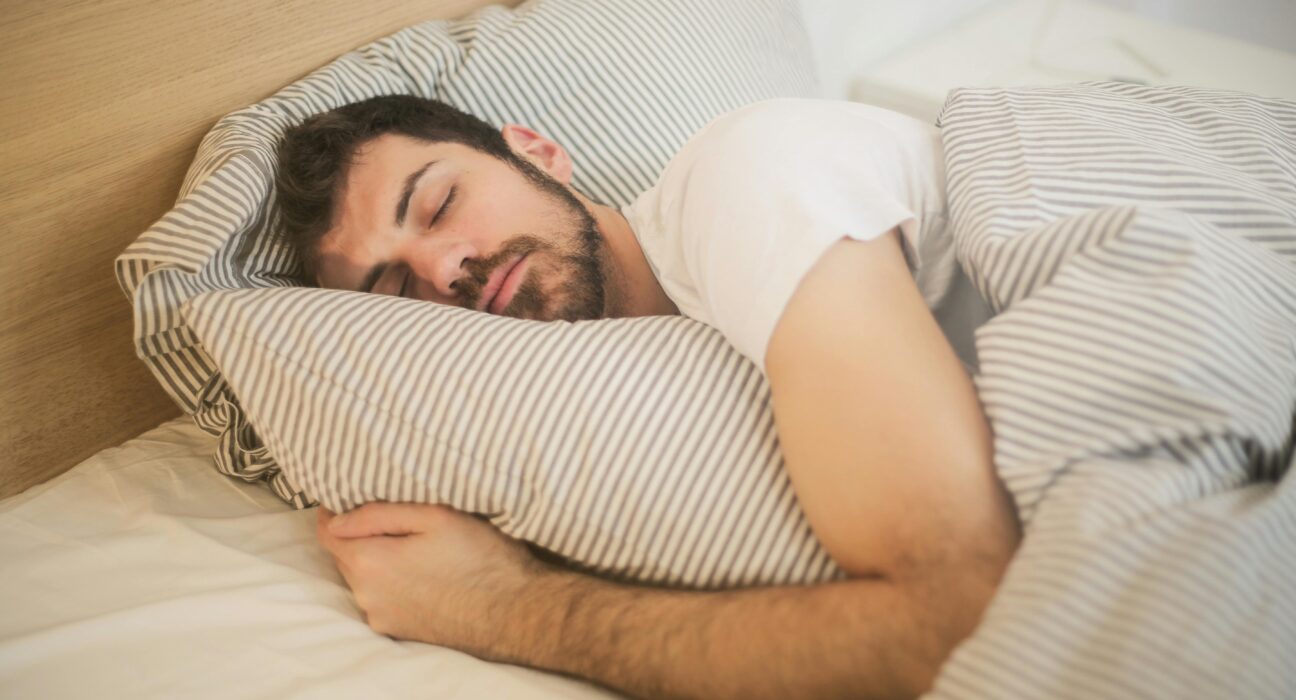The Sleep-Mental Health Connection: Why Rest is Essential for Emotional Balance

Introduction
Imagine waking up feeling refreshed, energetic, and ready to get started with the day. Many people consider this a distant ideal, but it is a state that we should all strive toward. What’s the crucial factor? An excellent night of sleep. Sleep is more than just a passive condition of rest; it is an essential biological process that has a significant impact on our physical health, cognitive ability, and emotional well-being.
In this post, we will look at the importance of sleep for mental health, including how it works, its relationship to Mental Health, the serious implications of sleep deprivation, and practical strategies to enhance sleep quality.
Understanding Sleep
The Sleep Cycle:
Sleep is made up of several stages that collectively create the sleep cycle.
This cycle is divided into two types:
REM sleep and non-REM sleep.
Non-REM sleep can be divided into three stages:
Stage 1: This is the lightest stage of sleep, when you go from awake to asleep. It just lasts a few minutes, and you can simply wake up throughout it.
Stage 2: At this point, your body temperature decreases, your heart rate slows, and your brain activity begins to decelerate, with irregular bursts of rapid brain waves known as sleep spindles. Stage 2 sleep accounts for approximately 50% of the total sleep cycle.
Stage 3: Also known as deep sleep or slow-wave sleep, this stage is important for physical healing and development. Your body repairs tissues, builds muscle, and strengthens its immune system. It is difficult to wake up someone at this stage.
The majority of dreaming happens during REM sleep, which comes after these stages. Your brain is extremely busy, similar to the activity seen when you are awake. This stage is critical for mental activities like memory consolidation, learning, and creativity.
Quantity vs. Quality:
While the quantity of sleep we get is vital, the quality of sleep is also critical. Quality sleep involves going through all sleep stages several times during the night. Even if you get enough sleep, disturbances might keep you from getting restful deep and REM sleep, leaving you feeling tired.
Factor that can Effect Sleep
Stress: High stress levels can cause lack of sleep and restless nights.
Diet: caffeine, alcohol, or large meals close to bedtime can affect sleep.
Environment: Noise, light, and uncomfortable temperatures can interfere with sleep.
Lifestyle factors: such as irregular sleep schedules, a lack of physical activity, and excessive screen time before bedtime can all have a poor impact on sleep quality.
The Relationship Between Sleep and Mental Health
Effects of Sleep on Mental Health:
Sleep has an important effect on our mental health. Adequate sleep supports emotional regulation, which helps us manage stress and unpleasant emotions more efficiently. It also improves mental functions such as attention, memory, and problem-solving abilities, helping to overall mental health. Poor sleep can cause irritation, mood fluctuations, and difficulties concentrating.
Mental Health Disorders Linked to Poor Sleep:
Several mental health disorders are closely linked to poor sleep, including:
- Depression: Insomnia and other sleep disturbances are common in people with depression. Lack of sleep can exacerbate depressive symptoms and hinder recovery.
- Anxiety: Anxiety disorders often go hand-in-hand with sleep problems. Worry and fear can make it hard to fall asleep or stay asleep, and sleep deprivation can, in turn, heighten anxiety.
- Bipolar Disorder: Sleep disturbances are a hallmark of bipolar disorder, with insomnia or oversleeping often accompanying manic and depressive episodes.
Research and Studies
Numerous studies have highlighted the link between sleep and mental health. Several research papers show the connection between sleep and mental well-being. For example, a study in the journal Sleep indicated that people with insomnia had a much greater chance of developing depression than people without sleep problems.
An additional study published in The Lancet Psychiatry found that people with psychosis who got cognitive behavioral therapy for insomnia (CBT-I) experienced significant decreases in symptoms and anxiety.
Effect of Sleep Deprivation
Short-Term Effects:
Short-term effects of sleep loss include:
Reduced mental function: Lack of sleep cause difficulty in concentrating, choosing a course of action, and solving issues.
Emotional instability: Sleep deprivation increased irritability, stress, and mood swings.
Physical effects: Effects on the body include exhaustion, slowed reaction times, and impaired coordination.
Long-Term Effects:
More serious effects of chronic sleep loss include:
Increased risk of mental health disorders: Sleep problems that persist over time may lead mental health illnesses to arise or worsen.
Weakened immune system: Sleep deprivation affects immune system performance, which increases vulnerability to sickness.
Overall reduced quality of life: Sleep issues that do not go away can have a negative effect on relationships, daily functioning, and performance at work.
Enhancing Sleep Quality to Promote Mental Health
Tips for Good Sleep Hygiene:
The quality of your sleep can be significantly improved by practicing better sleep hygiene. Here are a few useful pointers:
- Keep a regular sleep schedule: Even on the weekends, go to bed and wake up at the same times each day.
- Establish a peaceful environment: Create a cool, calm, and dark bedroom. Invest in pillows and a comfortable mattress.
- Reduce Screen Time: Reduce the amount of time you spend on screens before bed since the blue light that smartphones, tablets, and computers emit can keep you from falling asleep. At least one hour before going to bed, try to avoid using screens.
- Create a routine for going to bed: Before going to bed, participate in relaxing pursuits like reading, taking a warm bath, or listening to music that promotes relaxation.
Lifestyle Changes
Additionally, several lifestyle modifications will help you sleep better:
- Regular exercise: Spend time in regular exercise to enhance your ability to fall asleep quickly and stay asleep longer. Try, nonetheless, to avoid doing hard workouts right before bed.
- Keep an eye on your diet: Avoid caffeine and heavy meals right before bed. Instead, if you’re hungry, take out a small snack.
- Handle stress: You can lower tension and get better sleep by using methods like deep breathing, mindfulness, and meditation.
Professional Help
If you’ve tried improving your sleep hygiene and lifestyle but still struggle with sleep, it might be time to seek professional help. Medical care is necessary for such conditions including sleeplessness and chronic insomnia. A medical professional can prescribe medication, cognitive behavioral therapy for insomnia (CBT-I), or other approaches based on your individual needs.
Conclusion
Sleep is important for general health because it keeps the mind in a healthy state. We may greatly improve our mental health and general quality of life by understanding the importance of sleep, appreciating the effects of sleep deprivation, and taking action to improve the quality of our sleep. It’s time we started treating sleep like a necessity rather than a luxury.
Put your Gadgets away, make a relaxing space, and treat yourself to a restful night’s sleep this evening. Your body and mind will be thankful for it.










